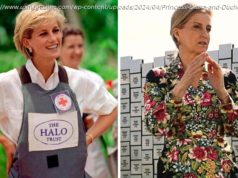The late Chuck Berry had many hits, but only one of them made it to number one.
“My ding-a-ling, my ding-a-ling, I want to play with my ding-a-ling. ”
Chuck Berry had many hits, but this one, to the chagrin of some of his fans but apparently not Berry himself, was his only number one single in the United States and UK.
Rolling Stone once listed it as one of 22 “terrible songs by great artists”.
The ditty , replete with double entendre, was recorded in the UK in 1972. Berry was performing in Coventry as part of the Lanchester Arts Festival.
Playing at the Locarno Ballroom, the rock and roll legend cajoled the audience to sing the song’s chorus. The women sang “my” and the men sang the “ding-a-ling” refrain.
“I want you to play with my”, the women continued, “ding-a-ling”, the men finished. It was juvenile stuff, but Berry was clearly delighted. He apparently was unaware that the show, which was followed by a Pink Floyd gig, was being recorded.
The song was released as a single at about four minutes in length, and later appeared on the album The London Chuck Berry Sessions at a whopping 11 minutes.
Tributes paid to legendary Chuck Berry
Seven of the best songs
While it may make diehard fans cringe, Berry considered it to be as good as any of his other songs. It fit with his performing philosophy of giving “people what they want”, he told Rolling Stone in a 2010 interview.
“I’m searching for who is attentive out there in the audience. I can look around and be singing My Ding-A-Ling and stop and sing ‘The Lord’s Prayer’ because some people will be sitting out there looking like they’re from church,” he told the magazine.
And the financial rewards from the number one hit pleased a man with a notorious attitude to money. “Made a lot of money: a $200,000 cheque. I’ll never forget that cheque. And it’s all dirt. Nice, cleeean dirt! ” Rolling Stone quoted him as saying.
But the song, despite cloaking its sexual references in metaphor, caused consternation in some quarters.
In 1973, the conservative activist and campaigner Mary Whitehouse wrote to the BBC director general to complain after a performance of the song on Top of the Pops.
A teacher had written to her National Viewers’ and Listeners’ Association, she said , complaining that she had found a class of young boys “with their trousers undone, singing the song and giving it the indecent interpretation which – in spite of all the hullaballoo – is so obvious”.
The BBC’s then-director general Charles Curran replied that he believed that “the innuendo is, at worst, on the level of seaside postcards or music hall humour”.
Clearly the public agreed. The single reached number one in Britain, too.






